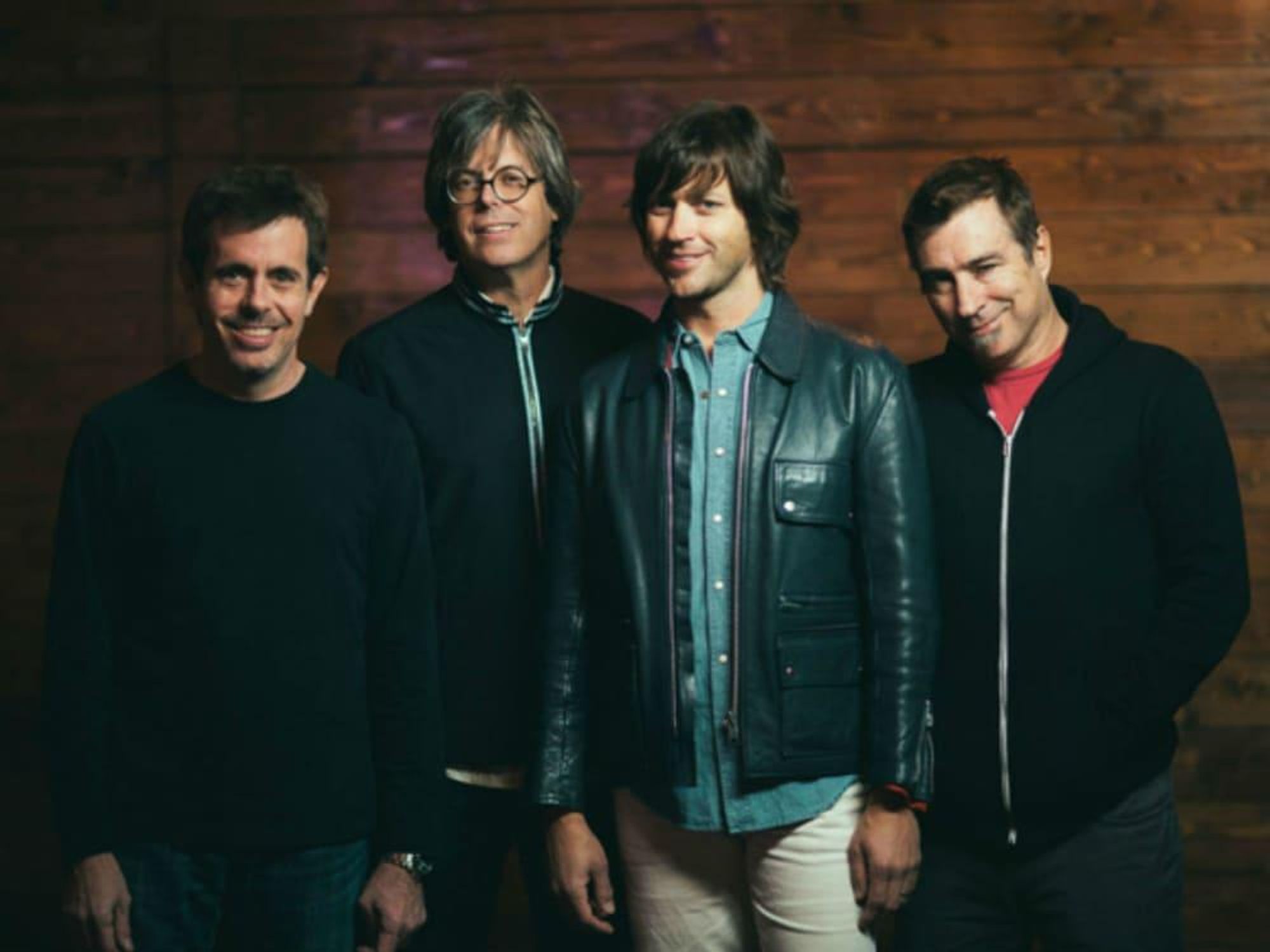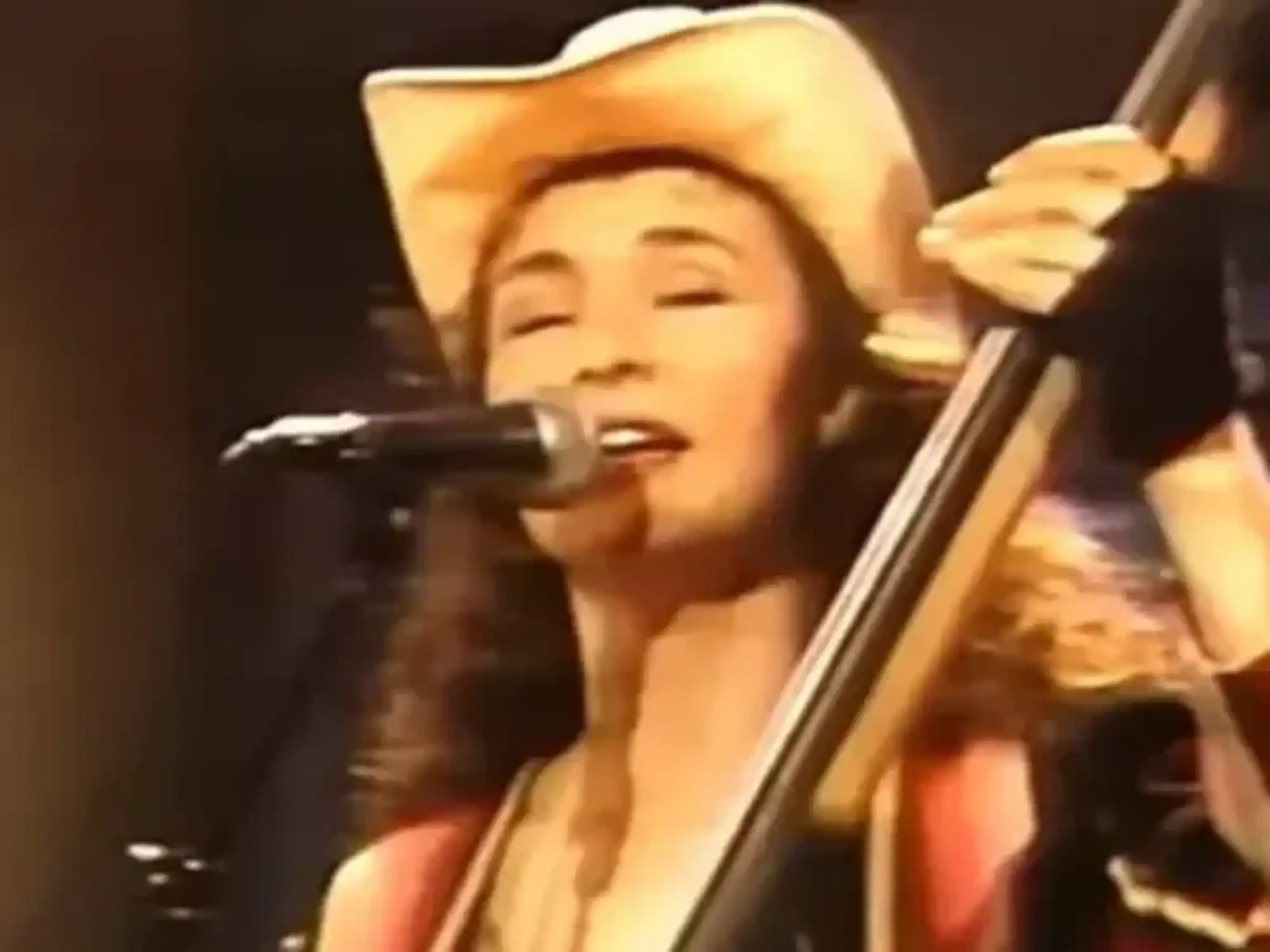CultureMap Interview
Old 97's frontman Rhett Miller talks songwriting and the dangers of self-indulgence

When considering the Texas music canon of the past quarter century, one wouldn’t think long before putting Old 97's in the forefront of the pack. Now 24 years in as a band, the group has survived cross-country moves, major labels, and solo endeavors to mount a late-career renaissance in recent years. After receiving stellar reviews of 2014’s Most Messed Up, a return to their rowdy roots, the group has just released a worthy follow-up in Graveyard Whistling. The new album can play a bit darker than its predecessor in spots, though it also contains some classic “women and whiskey” songs like “Jesus Loves You.”
In advance of the Old 97's recent co-headlining appearance at Old Settler’s Music Festival, we called lead vocalist and songwriter Rhett Miller to talk about songwriting, music streaming, and using music to make sense of the world.
CultureMap: Looking back at the alt-country scene of the 1990s, many artists who went on to long, storied careers. Does the volume of great artists from your peer group surprise you at all?
Rhett Miller: When we first signed to Elektra, they were releasing The Prodigy’s album that had “Firestarter” on it the same month. I remember there being a debate amongst the A&R guys — which would be the next musical movement: Americana or angry dance music? I was adamant even then that you should never bet against angry dance music for immediate hits! But I also thought that the Americana acts stood a much greater chance for longevity and creating catalogs we could be proud of. I think that’s been proven true: that music doesn’t sound like it’s tied to an era. One thing I hadn’t anticipated was this streaming world where each of our albums has equal currency, because they’re all on a Spotify list. That’s really cool — it makes timelessness important. Though The Prodigy probably made millions of dollars in 1997.
CM: Playlist and streaming culture has certainly changed the ways you are paid as an artist, and it changes recording budgets. How do you feel about it as both an artist and a fan?
RM: I’m going to give the answer I’m not supposed to, but it’s true: I love it. I love my $10/month library of all the music that exists in the world — minus Taylor Swift or whatever. I love dialing it up on my phone, and that my kids can request things or look them up, and not worrying about my CD collection. It’s all there, and it’s all on relatively equal footing. Of course things are promoted and there are pop hits, but most bands are just out there standing on their own merit. I think most bands that make real music ultimately end up benefiting from this new system.
CM: I first heard Old 97's during the late 1990s, when your music and songwriting seemed to be in a poppier phase. Now that there’s less label pressure and you are simply writing for your audience, does that side of your work ever turn up?
RM: I think that’s always been a part of us. The perception when we did our second and third major-label records was that we were bowing to the boardroom and doing radio-friendly material. The truth of it was I’d always been obsessed with British rock and pop like The Kinks and Bowie as a weirdo, artsy kid in Texas. I liked the foreign, “otherness” of it. I didn’t listen to much country until I was 19, because there was that redneck-type baggage.
So by the time we made “Fight Songs,” I was back to British music and listening obsessively to Belle and Sebastian and “Waterloo Sunset” and beautiful things like that. So I wanted to do that within the confines of our sound and style. There was a lot of struggle — Elektra probably wanted us to sound good next to Third Eye Blind on the radio, and some music critics wanted us to be hardcore country.
CM: Listening to “Fight Songs” alongside a lot of that '90s Britrock at the time — it sounds like Texas, but it didn’t sound totally out of place, either.
RM: We’re all huge Oasis fans. It’s always been an unspoken touchstone. That big, anthemic rock thing. We may hold that in higher regard than any of our Americana peers.
CM: You’re a very self-aware lyricist. Your song protagonists are often rock-singer confident, but there’s a knowing nod at the audience or some self-deprecation. How do you walk the tightrope between conveying a good lyric and letting the audience in on the joke?
RM: The short answer is that I don’t think too much. I write the kinds of songs that I’d like to hear, and I write in keeping with the literature I read. My pet peeve are artists who take themselves too seriously. There’s nothing worse. I went to see a contemporary of mine, who shall remain nameless, recently, and it was so self-indulgent. It was backlit and quiet, and they only played new material for 45 minutes, and there were no old favorites. This was a very successful artist, and there was a huge audience, and they were rightly pissed off. You owe a debt to your audience — you don’t exist without them.
They’re making a big effort to be there. These people spent money, got a babysitter, and left their homes, so you [need to] keep that in mind. Artists give a gift to audiences in our way, but audience give us a gift, too — they give us the job we have! So when a performer does that: “Turn the f*cking lights down and shut up. Don’t you know how important the sentiments I have are?” That drives me f*cking crazy. We should all be in this together. I admire people that make art more than almost anyone, but it doesn’t make them gods.
CM: You spend a lot of time writing and create more songs than you can reasonably record, even with adding in solo records. How do you create in that volume?
RM: I love to write. Just this week, I know a novelist who has a film being made of one of his books, and he asked a few of us to take a crack at writing songs for the film. That kind of a challenge —when I’m given parameters, or a theme and a nudge — I love doing this. It’s so much fun. This is my job! I wake up and there’s not a song, so I have breakfast, write lyrics, sit around and play guitar, and then there’s a f*cking song, where there was nothing before I woke up. It still seems like magic to me, though I try not to get too precious about it, which is hard sometimes when it’s the thing that feeds your children.
Lately I’ve been lucky enough to teach some songwriting workshops and to work with some younger rock and pop songwriters who are still learning the craft of it. The more I do it, the more I love it. That act of creation gives meaning to everything. As someone who struggled with suicidal impulses at an early age, and with finding meaning in this world that is so frustrating, writing is so rewarding. I don’t know if I could do any other job. I do dream of writing a novel, but in the meantime, this satisfies me. It’s compulsive.
CM: We’re living in strange, serious, and turbulent times. How is your life from the stage in 2017: business as usual or different?
RM: Every night’s a little different. I’m actually not certain, because I just started using in-ear monitors after years of not doing that because it looks not rock and roll. But I’d been losing my voice because of screaming over the guitar amps and drums right next to me. And if I lose my voice, lots of people can’t do their jobs. So those monitors can block out the sound of the audience, and I’m really having to overcome that. I have to make myself remember, because I can see the crowd, but I can’t hear them. There are songs like “Big Brown Eyes” where the audience always shouts key lines, and I have to tell myself, “they’re doing it, just keep going.”
To your question, where I feel that climate is looking at the audience, and thinking to myself: “Man, what are you all doing here?” In this fractured culture, where so much of our personal interaction happens online, and everyone measures in likes and retweets ... to be in a room with other people with whom you share a passion as ephemeral as music, it’s important, and that’s something that’s easy for me to forget. An ex-girlfriend used to tell me when I left on tour, “You’re not curing cancer!” It’s a frivolous job, which I’m keenly aware of, but there is some nobility in bringing songs to people and bringing people together to sing and listen to them.
CM: Your April shows in Texas are both rather unconventional. You recently curated a festival in Dallas, and you were just a headliner at Old Settler’s in Austin. How’d you organize the Dallas event — did you guys actually choose the lineup?
RM: Yes, we did. We talked about it a lot, and it’s really hard. I’ve learned that I really don’t want to be a booking agent. Coordinating schedules, building a cohesive lineup, convincing bands to come, and figuring out how much to pay them is a freaking nightmare. The fun part is building something that makes my hometown of Dallas a better city to be in, and making something that I’d like to see.
We did this last year, and while Nikki Lane was on the bill, at the end it was five hours of dudes. So it was important to us this year to have a stronger female presence at the top of the bill. It just so happened that I saw Lucinda Williams last year the day after our festival at the Kessler in Dallas, and she was killing it, and I made my plan right there and then to convince her. It took months! I even had to send her pictures from the Ferris wheel from last year’s event. Then we landed Mavis Staples at the last minute, which was an out of left field surprise. I’m so proud.
CM: For Old Settler’s, which has that bluegrass and folk flavor, how do you decide what to play to a festival crowd?
RM: At outdoor festivals, the stuff that we do that’s fast, loud, and train beat — the punk-rock/bluegrass hybrids like “Doreen” — don’t always work in that setting. The train beat tends to get lost and trip over itself in the echoes. We tend to do a straighter, mid-tempo set. It’s so OCD, but I’ll go out on the day, and listen to the space and look at the people. Then I try and imagine what that audience wants to hear, and I’ll sit for two hours and then make a stupid set list. I think about it too much, but that’s what I do.
---
The Old 97's play at Stubb’s in Austin on June 8, with guest Shooter Jennings.
